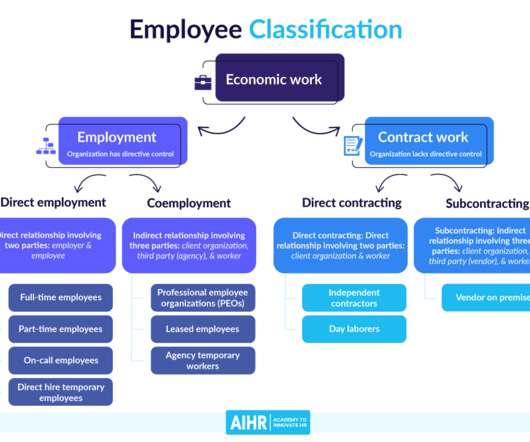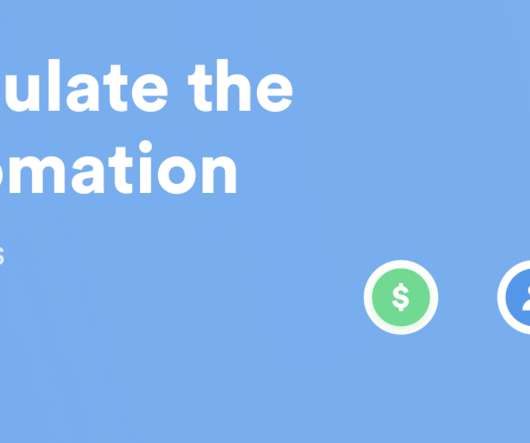Employee Classification: A Practical Guide
Analytics in HR
MARCH 9, 2022
Based on the hours worked, job duties, and the expected duration of the job, most employers will classify their employees into five types, plus one extra type: Full-time employees Part-time employee Temporary employees Interns Seasonal workers Leased employees (the extra type). Also, some people are hired for the duration of a project.


















Let's personalize your content